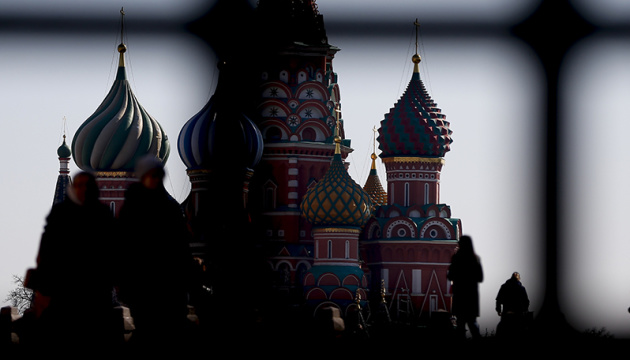John Roberts Is Shocked Everyone Hates His Trump Immunity Decision
Supreme Court Chief Justice John Roberts has spent the months following Donald Trump’s immunity decision in relative distress, despite the fact that he cooked up its majority opinion himself.The chief justice reportedly never wanted the nation’s highest court to be a cog in the political machine, but the country’s reaction to the monumental decision has skewed his vision, according to a CNN analysis published Tuesday.Since the court issued its consequential immunity ruling in Trump v. United States at the beginning of July, Roberts has skirted making public speeches, while colleagues and friends described the conservative justice as “especially weary,” the outlet reported.Public opinion of the institution since the decision has soured. Fewer than half of Americans—approximately 47 percent—expressed favorable views of the Supreme Court in the ruling’s wake, with the majority of positive opinions coming from Republicans, according to a Pew Research Center survey.Still, Roberts’s defenders argue that the backlash to the immunity decision was overblown.“The Trump immunity case is less about Trump and more about not opening the door” to future administrations “coming after previous presidents,” said attorney Erin Murphy, one of Roberts’s former law clerks, at a Georgetown University Law Center session.And some of Roberts’s longtime friends, such as Harvard Law School professor Richard Lazarus, have insisted that the reconstructed executive power still leaves room for a successful case against Trump.“The bottom line is clear,” Lazarus wrote in an August essay for The Washington Post. “Whether you are outraged by or sympathetic to the surprising sweep of the Supreme Court’s presidential immunity ruling, it nevertheless leaves the former president very much open to a successful felony prosecution.”The case sprang out of Trump’s federal election interference trial as a preemptive defense, with Trump’s lawyers arguing that he could not be tried on conspiracy and obstruction charges due to presidential immunity privileges that he held during office. In a 6–3 ruling along ideological lines, the court ruled that some of the actions Trump was indicted for could be categorized as official acts during his presidency.Writing the majority opinion, Roberts outlined that the president was not immune from criminal prosecution—except on some occasions.“The President is not above the law,” Roberts wrote. “But under our system of separated powers, the President may not be prosecuted for exercising his core constitutional powers, and he is entitled to at least presumptive immunity from prosecution for his official acts.”Sonia Sotomayor led the liberal justices with a scathing dissent, warning that “the President is now a king above the law.”“With fear for our democracy, I dissent,” she wrote.

Supreme Court Chief Justice John Roberts has spent the months following Donald Trump’s immunity decision in relative distress, despite the fact that he cooked up its majority opinion himself.
The chief justice reportedly never wanted the nation’s highest court to be a cog in the political machine, but the country’s reaction to the monumental decision has skewed his vision, according to a CNN analysis published Tuesday.
Since the court issued its consequential immunity ruling in Trump v. United States at the beginning of July, Roberts has skirted making public speeches, while colleagues and friends described the conservative justice as “especially weary,” the outlet reported.
Public opinion of the institution since the decision has soured. Fewer than half of Americans—approximately 47 percent—expressed favorable views of the Supreme Court in the ruling’s wake, with the majority of positive opinions coming from Republicans, according to a Pew Research Center survey.
Still, Roberts’s defenders argue that the backlash to the immunity decision was overblown.
“The Trump immunity case is less about Trump and more about not opening the door” to future administrations “coming after previous presidents,” said attorney Erin Murphy, one of Roberts’s former law clerks, at a Georgetown University Law Center session.
And some of Roberts’s longtime friends, such as Harvard Law School professor Richard Lazarus, have insisted that the reconstructed executive power still leaves room for a successful case against Trump.
“The bottom line is clear,” Lazarus wrote in an August essay for The Washington Post. “Whether you are outraged by or sympathetic to the surprising sweep of the Supreme Court’s presidential immunity ruling, it nevertheless leaves the former president very much open to a successful felony prosecution.”
The case sprang out of Trump’s federal election interference trial as a preemptive defense, with Trump’s lawyers arguing that he could not be tried on conspiracy and obstruction charges due to presidential immunity privileges that he held during office. In a 6–3 ruling along ideological lines, the court ruled that some of the actions Trump was indicted for could be categorized as official acts during his presidency.
Writing the majority opinion, Roberts outlined that the president was not immune from criminal prosecution—except on some occasions.
“The President is not above the law,” Roberts wrote. “But under our system of separated powers, the President may not be prosecuted for exercising his core constitutional powers, and he is entitled to at least presumptive immunity from prosecution for his official acts.”
Sonia Sotomayor led the liberal justices with a scathing dissent, warning that “the President is now a king above the law.”
“With fear for our democracy, I dissent,” she wrote.



